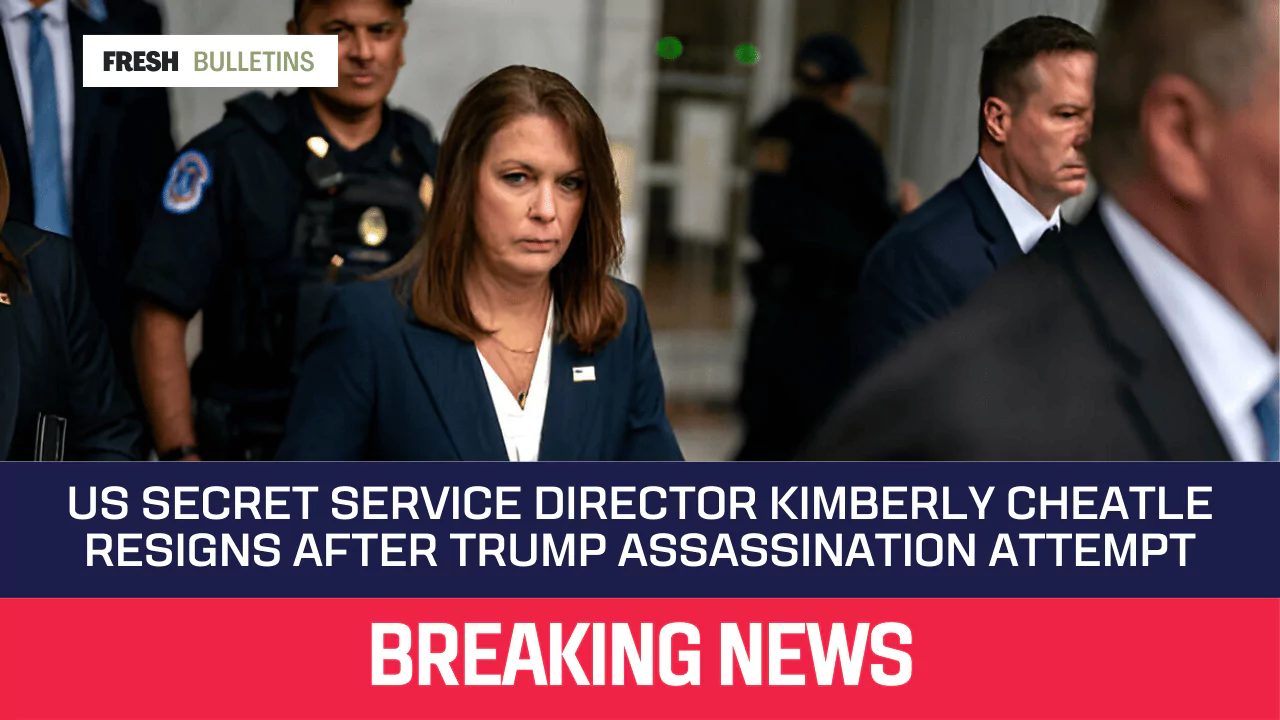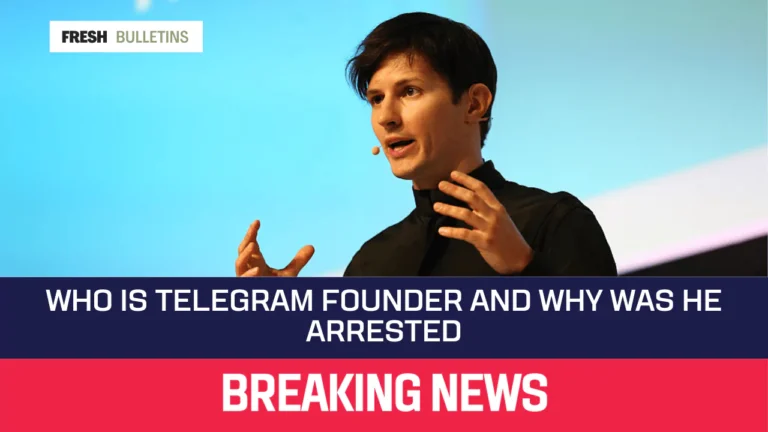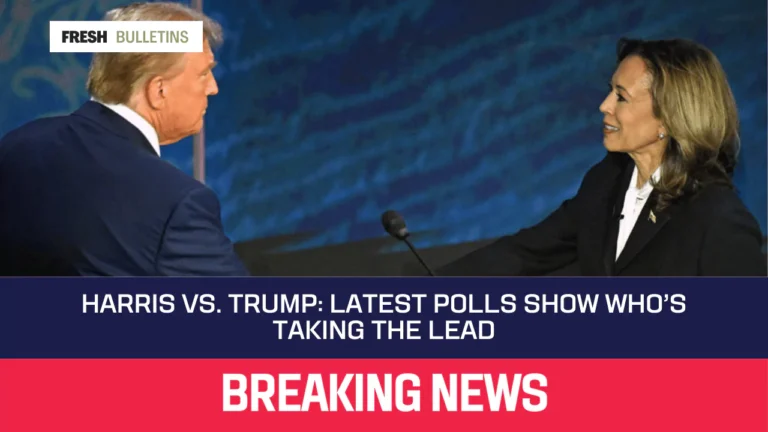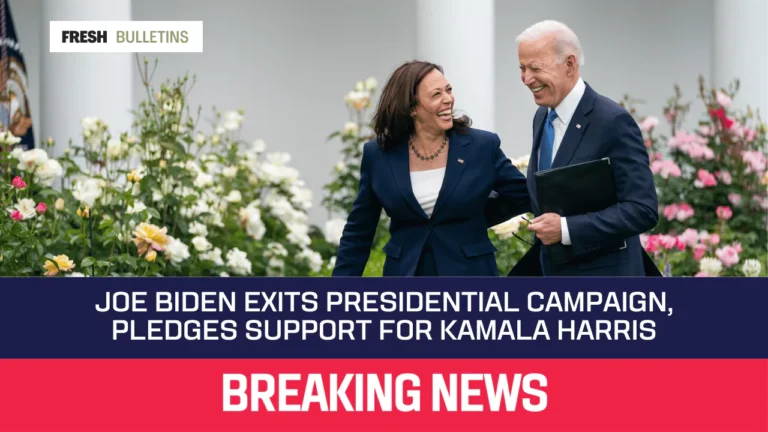US Secret Service Director Kimberly Cheatle Resigns After Trump Assassination Attempt
The US Secret Service, which protects high-ranking officials, faced a big challenge after an assassination attempt on former President Donald Trump. This happened during a rally in Pennsylvania on July 13, 2024.
Kimberly Cheatle, the director of the Secret Service at that time, decided to step down from her position following this event. The attempted attack led to Trump being slightly hurt and another person at the rally losing their life.
Cheatle’s career included 27 years with the Secret Service and working at PepsiCo managing safety around the world. But after questioning by Congress about how her team handled security for Trump’s rally, many people were not happy with her answers.
Background on the Assassination Attempt on Trump
The shooting incident involving former President Donald Trump resulted in calls for accountability and congressional scrutiny of the Secret Service’s protective operations. The public safety concerns sparked by the security failure at a campaign rally underscore the importance of strong security measures and potential changes within the agency.
Details of the Shooting
On July 13, 2024, former President Donald Trump was at a rally when danger struck. From a rooftop, Thomas Matthew Crooks aimed and fired. His shot traveled 135 meters (157 yards), hitting Trump in the ear and face.
Despite the chaos, Corey Comperatore stood strong to protect his family but tragically lost his life.
Secret Service agents sprang into action amid the panic. Investigations by The FBI began immediately to understand this alarming breach of security. This day marked an unforgettable attack on U.S. soil, highlighting critical vulnerabilities within presidential protection efforts.
Reaction from Government Officials
Government officials quickly reacted to the assassination attempt on former President Donald Trump. Their responses ranged from shock and disgust to calls for thorough investigation and accountability.
- President Joe Biden expressed his disgust at the incident, ensuring Trump’s safety was a priority.
- The House Oversight Committee, including members like Nancy Mace and Alexandria Ocasio-Cortez, criticized Secret Service Director Kimberly Cheatle for her delayed response and the initial report on the incident.
- Representative Nancy Mace emphasized that the slow reaction and reporting were unacceptable, drawing parallels to past security failures.
- Alexandria Ocasio-Cortez demanded a more in-depth investigation into what she termed as operational failures, stressing the need for accountability.
- Homeland Security Secretary Alejandro Mayorkas became involved, highlighting the importance of understanding what went wrong to prevent future incidents.
- The House Oversight and Accountability Committee held a hearing to scrutinize the lapses in security that led to the attempt on Trump’s life.
- Speaker of the House Mike Johnson voiced concerns over public safety and national security, urging for an independent review of the Secret Service’s protocols.
- Congressional oversight became more rigorous with figures like James Comer playing key roles in questioning Secret Service leadership regarding their preparedness and response strategies.
Officials from diverse political backgrounds joined forces in seeking facts about how such a significant breach of security occurred, ensuring it would not happen again.
Calls for Accountability
Lawmakers from both parties were upset with Kimberly Cheatle. They did not like how she gave vague answers about the investigation into the assassination attempt on Donald Trump. This attempt was a big security failure.
People in powerful positions, including house speaker Mike Johnson and senators like Marsha Blackburn, demanded more information. They thought someone should be responsible for allowing such a dangerous event to happen.
Cheatle herself said there was a big mistake in how her agency worked during the attack. Because of this, many asked for her to leave her job. The problem became so serious that Ronald Rowe had to step in as the new leader of the Secret Service.
This change showed everyone that keeping people safe is very important and mistakes have big consequences.
Secret Service Director Kimberly Cheatle
Secret Service Director Kimberly Cheatle has resigned following the US Secret Service’s security lapse during an attempted assassination on Trump. Her career included extensive experience in public service and law enforcement, but her resignation comes amid congressional scrutiny and questions regarding the security breach.
Brief Overview of Her Career
Secret Service Director Kimberly Cheatle began her career at PepsiCo, where she managed Global Security before devoting 27 years to the Secret Service. In August 2022, she assumed the role of director, overseeing crucial security measures for top government officials and high-profile events.
Kimberly Cheatle’s extensive experience in both private and public service has been invaluable in ensuring the safety and security of our nation’s leaders.
Congressional Questioning and Scrutiny
The House Oversight Committee held a hearing on security lapses after the Trump assassination attempt. She was criticized by parliamentarians for her unclear comments to the investigation, prompting bipartisan calls for her resignation and impeachment.
Cheatle connected the incident to the 1981 Reagan assassination attempt during interrogation.
While investigating security lapses after Trump’s assassination attempt, Congress chafed at Cheatle’s vague replies. Her actions and replies amid congressional examination prompted bipartisan calls for her resignation and perhaps impeachment.
Cheatle’s parallel to a previous attack added relevance and heightened congressional inquiry.
Resignation of Secret Service Director Cheatle
Secret Service Director Kimberly Cheatle resigned amidst escalating concerns about security lapses. Her departure raises questions about the agency’s ability to safeguard high-profile individuals and events.
Reasons for Her Resignation
Cheatle acknowledged operational failure at the Secret Service and took full responsibility. Bipartisan calls for resignation and potential impeachment followed due to dissatisfaction with her handling of the ongoing investigation.
Lawmakers were displeased with Cheatle’s lack of specific answers about the security lapse, contributing to her decision.
Her lack of satisfactory responses to lawmakers’ inquiries sparked bipartisan concern, leading to pressure for her resignation after acknowledging significant operational failure at the Secret Service.
The dissatisfaction stemmed from a perceived absence of clear accountability and specific answers regarding the security lapse, prompting bipartisan calls for resignation and potential impeachment.
Impact on the Secret Service
The resignation of Director Kimberly Cheatle has left the Secret Service in a period of change. With Deputy Director Ronald Rowe stepping in, the agency is facing a pivotal moment.
Congressional hearings scrutinized the security lapses, prompting a push for accountability and reforms within the Secret Service to strengthen its protective measures and ensure the safety of high-profile individuals like former President Donald Trump.
The agency’s future strategies for enhancing security protocols are under intense consideration, emphasizing the importance of proactive measures in preventing similar incidents.
Future Implications
The Importance of Strong Security Measures
Protecting public figures and national stability requires strong security. After the Trump assassination attempt, strong security standards are needed to protect political leaders.
Keeping government proceedings safe and honest depends on the Secret Service’s strict protective methods. Deterring security breaches requires increased attention, risk assessments, and intelligence gathering.
Developing state-of-the-art security infrastructure to prevent public figure assassinations requires learning from past instances. Collaboration between law enforcement agencies, smart resource deployment, and ongoing threat assessment emphasize the importance of enhancing security at all levels.
Innovative technologies must be integrated into established frameworks to protect against hazards and allow democratic engagement.
Enhancing surveillance systems, biometric identification technologies, and cybersecurity defenses can help avoid breaches in complicated organizational structures like government agencies.
Administrations should emphasize official safety and citizens’ right to communicate with their representatives without compromising by investing in these smart initiatives to mitigate external threats without compromising accessibility or openness.
Next Steps for the Secret Service
After the recent security breach, the Secret Service must strengthen its security measures. This demands a complete security review and increased intelligence collecting and analysis. Modern technology must be prioritized by the Secret Service to improve its defensive capabilities and enable seamless cooperation across national security organizations.
Strengthening Intelligence Operations
- Increase data collection and analysis through advanced surveillance techniques and strong information-sharing mechanisms.
- Enhance collaboration with external intelligence agencies to strengthen preemptive threat detection efforts.
Revamping Training Programs
- Improve training for agents to effectively address evolving security risks, incorporating scenarios based on recent incidents.
- Promote cross-disciplinary skill development that includes cyber resilience, crisis management, and unconventional threat response.
Modernizing Protective Infrastructure
- Utilize state-of-the-art equipment and technological innovations to reinforce physical security perimeters around high-profile individuals and events.
- Implement advanced access control systems to counter unauthorized intrusions into secure areas.
Strengthening Interagency Coordination
- Cultivate closer partnerships with law enforcement entities, such as local police departments, integrating their expertise into strategic security planning.
- Establish seamless communication channels between different government bodies involved in national security efforts.
Proactive Risk Assessment
- Conduct thorough risk assessments at key event venues, identifying potential vulnerabilities and formulating contingency plans to address them.
- Engage in regular simulations of diverse threat scenarios to evaluate operational readiness at all levels within the agency.
Enhancing Cybersecurity Measures
- Strengthen digital defenses against cyber threats targeting critical infrastructure associated with protective operations.
- Use cutting-edge encryption protocols to safeguard sensitive information from potential breaches or data compromises.
Fostering Public Awareness and Collaboration
- Promote public engagement initiatives aimed at enhancing civic awareness about proactive safety measures and fostering community cooperation in reporting suspicious activities.
- Encourage collaborative efforts with private sector stakeholders who play a vital role in reinforcing national security through their support systems.
Accountability Oversight
- Institute transparent evaluation processes within the organization that ensure accountability for lapses or shortcomings in protective operations.
- Implement a system for continuous improvement based on constructive feedback loops gleaned from operational experiences.
Public Safety Concerns
Following the Trump assassination attempt, public safety worries have increased. The House Oversight Committee hearing revealed Secret Service operational problems, increasing concerns about high-profile event protection.
This incident highlights the necessity for increased security and alertness to protect political officials and public gatherings. To restore national security confidence, authorities must address these public safety issues as they plan Secret Service actions.
Donald Trump’s attempted assassination shows that dignitaries and huge gatherings need rigorous security.
Changing dangerous landscapes must be examined to proactively manage threats, improving public safety at political rallies and official processes.
Advanced technology and risk assessment frameworks are vital for protecting against such risks and preventing future incidents.
Potential Changes within the Agency
US Secret Service Director Kimberly Cheatle resigned following the failed assassination attempt on Donald Trump. Subsequently, potential changes within the agency include:
- Enhanced Training Programs
- Strengthened Intelligence Collaboration
- Technological Advancements
- Operational Protocol Review
- Increased Personnel Recruitment
- Heightened Security Measures
- Leadership Restructuring
- Accountability Frameworks






